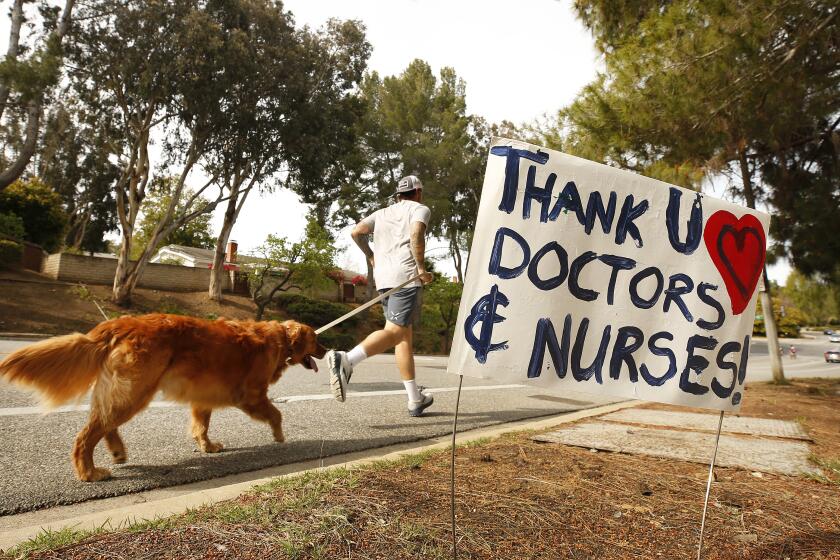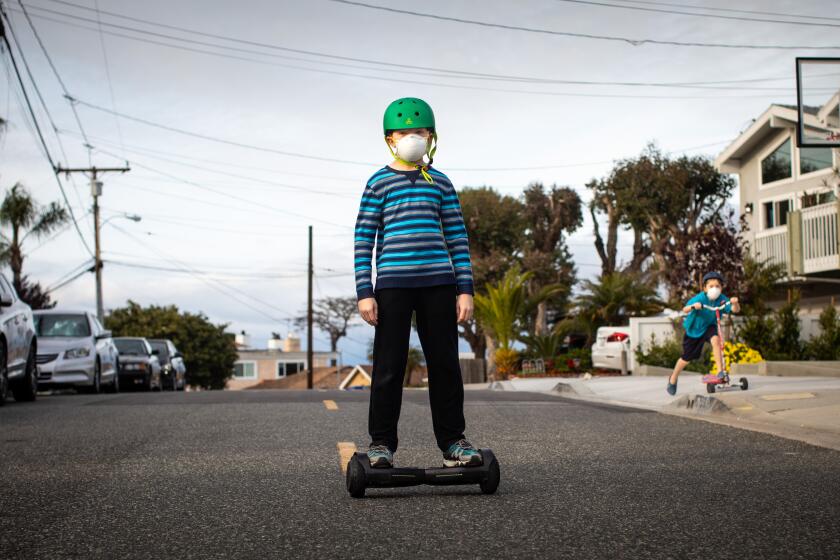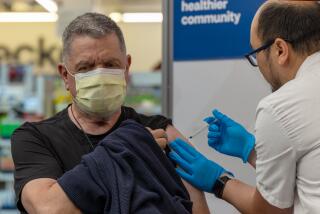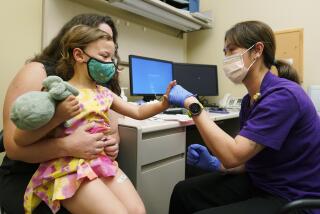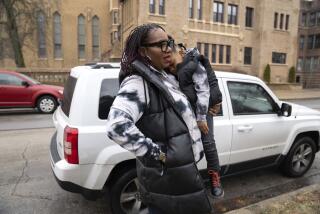Virtual pet therapy, a floor for potential cases: How childrenâs hospitals responded to coronavirus
In the 14 months that 4-year-old Rhett has battled cancer, few things excite him more than visits with Cooper.
When the playful dog lies on Rhettâs bed at Childrenâs Hospital Los Angeles, the boy forgets about everything else. At home, Rhett refers to every golden retriever and yellow Labrador he sees by the name of his canine friend and talks constantly about the dog until they are together again.
âSo much of their freedom and normalcy is stripped away when theyâre here,â Rhettâs mom, Jenn Dupke, 33, said of the young patients at the hospital.
The dog therapy program at CHLA includes 127 pairs of patients and dogs, including Cooper. The animals help ease childrenâs anxieties before surgery, during physical therapy and at checkups. But amid the coronavirus crisis, the hospital has had to move its 19-year-old program to a virtual space, one of several changes made to lessen dangers posed by the virus.
Rhett was diagnosed with stage 4 neuroblastoma in February 2019. Before social distancing was a commonplace effort to stem the spread of the coronavirus, the Dupke family took similar measures to protect their son, who is now in his fourth round of immunotherapy. It was as if they had a yearlong head start to what many now face daily, they said.
âThere wasnât much that weâve had to adjust to because we were always being extremely careful. We couldnât take Rhett to the store or to Chuck E. Cheese. We had to pull him out of speech classes,â Rhettâs father Mike Dupke, 45, said.
âWith COVID-19 coming into the picture, weâve been concerned by other people.â
Children arenât supposed to be as susceptible to serious complications from COVID-19, but at a hospital where patients are the most vulnerable of young people, risk remains.
The nationwide network of childrenâs hospitals began discussions in January about the novel coronavirus as it spread through China. CHLAâs chief medical officer, Dr. Jim Stein, said the rapid spread prompted his hospital to begin stockpiling personal protective equipment, including N95 masks and gloves, and working to develop an in-house test for the illness in anticipation of what was to come. More than 3,000 individuals have been tested for the virus at CHLA through its in-house pathology laboratory.
At least 440 children have tested positive for COVID-19 in Los Angeles County, where more than 20,000 people have been infected. Two children with underlying health conditions tested positive at CHLA and have since recovered after intensive care treatment, Stein said.
The hospital has repurposed a floor to accommodate patients and parents who may contract the virus, in order to isolate them from others. The cafeteria seating area temporarily closed for cleaning, screenings are required of every person who enters the hospital â including roughly 3,500 employees â and only one parent at a time is allowed inside a childâs room.
Stein said that social workers and child psychologists attached to the hospital have been routinely examining ways to ease children into the increased health and safety protocols without disturbing them. Face masks with colorful patterns have been distributed to patients, and a childrenâs book explaining the coronavirus in a kid-friendly manner has been developed for childrenâs hospitals nationally.
âIn pediatrics, things bounce off kids a lot more than they do with adults. They do get wrapped up less in fears than adults,â Stein said.
The hospital is also using telemedicine in an effort to mitigate parentsâ concerns and keep them from canceling appointments. More than 6,000 telehealth visits have been made at CHLA.
At Childrenâs Hospital Orange County, where virtual magic shows and ukulele lessons are offered to patients, telehealth platforms have been instituted for families too nervous to go to the hospital. About 500 virtual visits are made daily, said Dr. Katherine Andreeff, president of the medical staff at CHOC and assistant division chief of pediatric hospitalization.
âIf weâre not vaccinating our kids on time, that might be worse for our pediatric population than coronavirus.â
— Dr. Katherine Andreeff
It may be reasonable for parents to postpone some hospital visits, Andreeff said, but she worries that fears of the virus could prompt families to avoid necessary checkups for chronic conditions or scheduled vaccinations â decisions that could lead to an outbreak of pertussis or measles down the road.
âWhat worries us most is that families are afraid to come seek appropriate care,â she said. âIf weâre not vaccinating our kids on time, that might be worse for our pediatric population than coronavirus.â
A pediatrician offers tips on how to help kids understand the need for face masks due to COVID-19.
Last week, Rhett had his first virtual visit with Cooper.
His dad was in the room with him. Dupke said that when Cooper appeared on the iPad screen, Rhett reached out his hand to pet the dog. Cooper high-fived, and the handler gave the dog treats on the boyâs command.
It wasnât the same as a real-life visit, but it was better than no reunion at all.
âHe doesnât know what cancer is or why all these things are happening to him. He just views it as one inconvenience until he can play again,â Dupke said.
More to Read
Sign up for Essential California
The most important California stories and recommendations in your inbox every morning.
You may occasionally receive promotional content from the Los Angeles Times.

